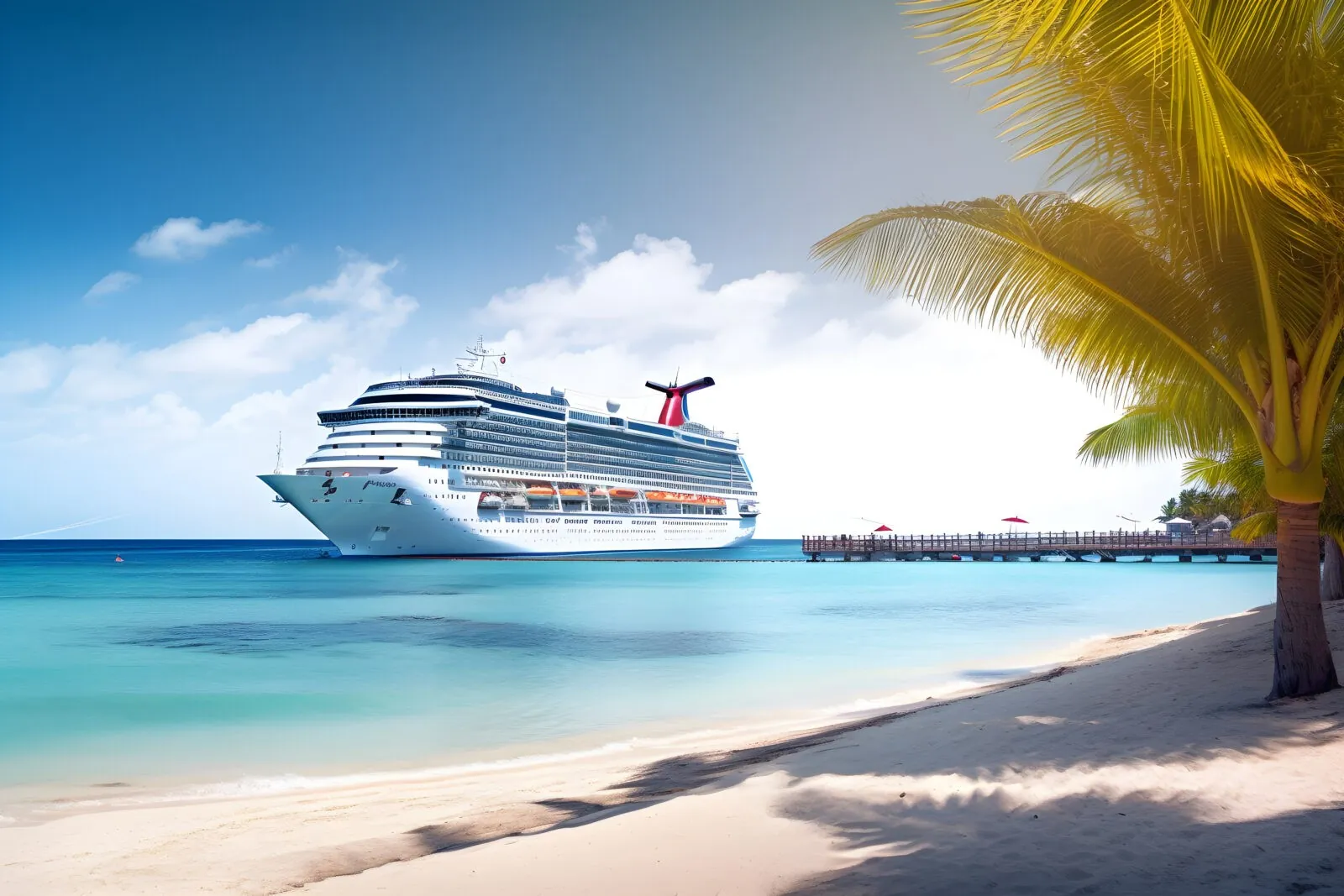What Happens If You Get Injured on a Cruise?
A cruise is meant to be a relaxing getaway, but accidents can happen anytime, anywhere—even at sea. From slip-and-fall injuries to medical negligence and excursion accidents, thousands of passengers suffer injuries on cruises each year. Unfortunately, pursuing a legal claim against a cruise line is not as straightforward as a typical personal injury case on land.
Maritime law governs cruise ship injury claims, making the legal process more complex due to jurisdictional issues, liability waivers, and limited filing deadlines. Understanding your rights and the steps to take after an injury can make all the difference in securing fair compensation.
This guide will walk you through the types of cruise ship injuries, legal protections available, steps to filing a lawsuit, and the compensation you may be entitled to.
Understanding Cruise Ship Injury Claims
What Qualifies as a Cruise Ship Injury?
Cruise ship injuries vary widely and can happen due to unsafe conditions, poor maintenance, negligence by crew members, or medical malpractice by onboard doctors. Unlike injuries that occur on land, those that happen at sea are governed by maritime law, which presents unique challenges for victims seeking compensation.
Here are some of the most common cruise ship injuries:
Slip-and-Fall Accidents
- Occur due to wet decks, poor lighting, loose carpets, and unmarked hazards.
- Can lead to fractures, concussions, back injuries, or severe sprains.
Medical Malpractice
- Delayed treatment or misdiagnosis of serious conditions.
- Improper administration of medications.
- Lack of proper medical equipment or trained medical personnel onboard.
Excursion Injuries
- Passengers are often injured during off-ship activities, such as snorkeling, zip-lining, or boat tours.
- The cruise line may try to deny responsibility by claiming third-party operators are at fault.
Food Poisoning or Illness Outbreaks
- Contaminated food or unsanitary conditions leading to norovirus outbreaks.
- Cruise lines may be responsible for failing to maintain proper hygiene and food safety standards.
Assaults & Crime Incidents
- Assaults by other passengers or crew members due to inadequate security.
- Theft or loss of personal belongings due to cruise line negligence.
If you have suffered any of these injuries while on a cruise, you may be entitled to compensation for medical bills, lost wages, pain and suffering, and more.
Passenger Rights on Cruises: What You Need to Know
Do Cruise Passengers Have Legal Protections?
Yes, but cruise contracts often limit passenger rights, making it difficult to sue cruise lines directly. These contracts may include:
- Jurisdictional Clauses – Requiring lawsuits to be filed in a specific court, often in Miami, Florida.
- Liability Waivers – Attempting to shield cruise lines from responsibility for passenger injuries.
- Shortened Filing Deadlines – Typically requiring claims to be filed within one year.
However, injured passengers are still protected under maritime personal injury law, including:
- General Maritime Law: Allows injured passengers to hold a cruise line accountable for negligence.
2. The Athens Convention: An international treaty that protects passengers on international cruises.
3. The Jones Act: Primarily applies to crew members but may help passengers in certain cases.
Can I Hold a Cruise Line Responsible for Medical Negligence?
Many cruise passengers assume that onboard medical facilities provide the same standard of care as hospitals on land. However, cruise ship doctors are often independent contractors, which can make it harder to hold the cruise line legally responsible for medical errors.
You may have a case if:
✔ The cruise line failed to provide proper medical equipment.
✔ The doctor’s negligence was linked to the cruise line’s policies.
✔ The cruise line delayed access to necessary medical care.
Even though proving medical malpractice on a cruise is difficult, a skilled maritime personal injury attorney can help build a strong case.
Filing a Personal Injury Claim Against a Cruise Line
Steps to Take After an Accident on a Cruise
If you’re injured while on a cruise, taking the right steps immediately can protect your right to compensation:
- Report the Incident – Notify the ship’s medical center or security team. Ask for a copy of the accident report.
2. Seek Medical Attention – Even if the injury seems minor, getting an official medical record is crucial.
3. Document the Scene – Take pictures of the accident location, your injuries, and any hazardous conditions.
4. Collect Witness Statements – Get contact details from passengers or crew members who saw the incident.
5. Preserve Medical and Expense Records – Keep copies of medical bills, treatment receipts, and travel expenses related to the injury.
6. Consult a Maritime Personal Injury Lawyer – Legal experts can help navigate the complexities of cruise injury lawsuits.
Where Can I File a Lawsuit? (Jurisdiction in Cruise Lawsuits)
Most cruise contracts specify where legal claims must be filed, usually in Miami, Florida, regardless of where the cruise departed from or where the injury occurred. Filing in the wrong court can result in your case being dismissed.
Seeking Compensation for a Cruise-Related Accident
What Damages Can You Recover?
Injured cruise passengers may seek compensation for:
- Medical Expenses: Emergency treatment onboard and ongoing medical care after disembarkation.
- Lost Wages: If the injury prevents you from working, you may recover lost earnings.
- Pain and Suffering: Compensation for emotional distress and long-term physical pain.
- Permanent Disability or Rehabilitation Costs: If the injury results in lifelong impairment.
- Emergency Transportation Costs: If medical evacuation was required.
Is Medical Care on a Cruise Covered by Insurance?
- Most cruise lines do not provide free medical care.
- Medicare and many health insurance plans do not cover cruise ship injuries.
- Travel insurance may help, but policies vary, and not all include medical malpractice claims.
How Long Do I Have to File a Claim? (Statute of Limitations)
Most cruise injury lawsuits must be filed within one year from the date of the accident. If you fail to file on time, you lose your right to seek compensation.
Frequently Asked Questions About Cruise Ship Injury Claims
Can I sue a cruise line if I get injured on board?
Yes, you can sue a cruise line if your injury was caused by negligence. However, cruise contracts often include legal clauses that restrict where and how lawsuits can be filed. Most claims must be filed in a specific court, such as Miami, Florida, and within a limited timeframe—usually one year from the date of injury.
How do I prove that the cruise line was negligent?
To prove negligence, you must demonstrate that the cruise line or its employees failed to maintain a safe environment, which directly resulted in your injury. This could include proving that the staff failed to clean up a hazardous spill, that medical personnel provided inadequate treatment, or that the cruise line did not follow proper safety protocols during excursions.
Are cruise ship doctors qualified to provide medical care?
Cruise ship doctors are typically licensed, but their qualifications vary. Many cruise lines hire medical staff as independent contractors rather than direct employees, which can complicate liability claims. Some passengers have reported receiving substandard care due to limited medical equipment and resources available onboard.
What happens if I need emergency medical treatment on a cruise?
If you require emergency medical treatment, you will be treated at the ship’s medical center. If your condition is severe, the ship’s doctor may recommend an evacuation to a land-based hospital. This can be done by helicopter or through the nearest port, but medical evacuations are expensive and often not covered by standard health insurance.
Does my health insurance cover medical expenses on a cruise?
Most standard health insurance plans, including Medicare, do not cover medical treatment received on a cruise ship. Some private insurance plans offer limited coverage, but passengers are usually required to pay out of pocket for onboard medical services. Travel insurance can help cover medical costs, but it is important to check the policy details for exclusions related to cruise ship injuries..
Contact The Cruise Injury Law Firm Today
If you’ve suffered an injury on a cruise, don’t wait. Strict legal deadlines apply, and cruise lines will try to avoid liability.
Need legal help? Contact The Cruise Injury Law Firm today for a free consultation!






